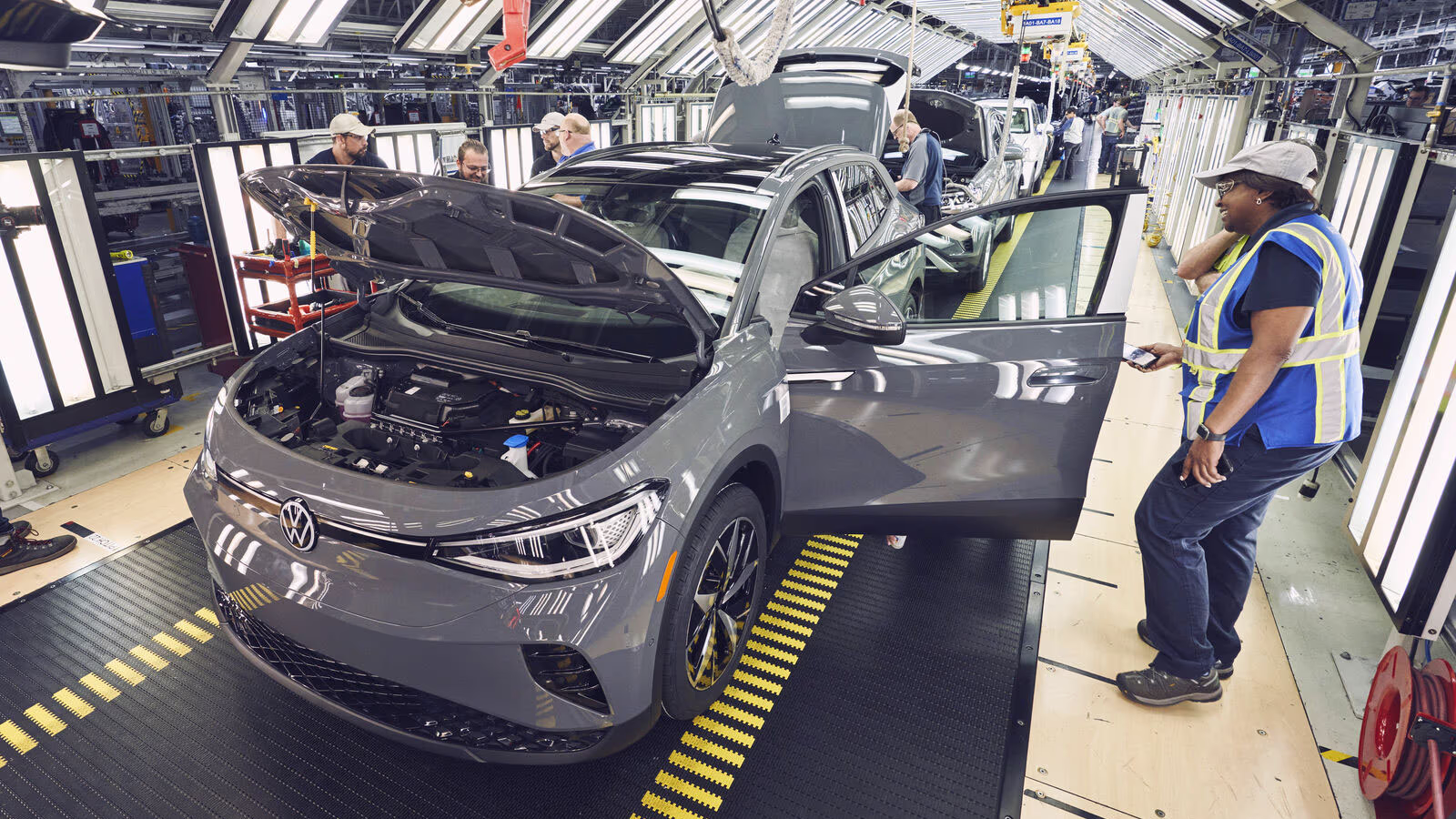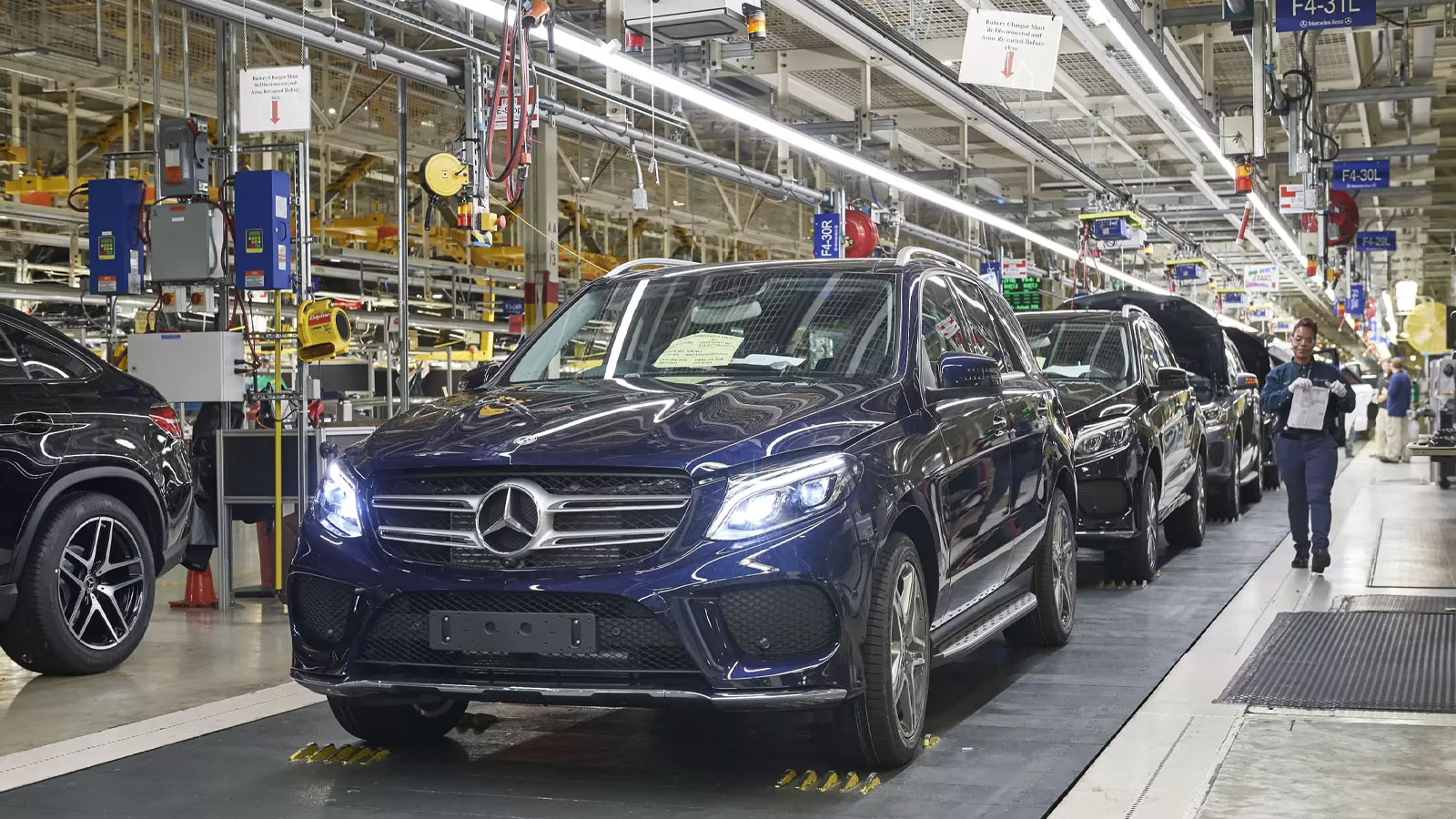Trump’s Tariffs were meant to bring jobs back to the U.S. Instead, they are prompting investors to rethink their strategies. German companies—which have invested over $650 billion in the U.S. economy—are beginning to pull back. The reasons go beyond rising costs: mistrust of the White House’s policies is deepening. Amid new import taxes, uncertainty in talks with the EU, and growing investment optimism within Germany itself, firms are increasingly inclined to keep their capital closer to home. Why is business logic clashing more often with protectionist logic—and what could that mean for a country long seen as a magnet for global investment?
When Donald Trump once again imposed sweeping import tariffs in April, the White House framed it as a bold move to revive American industry. But for many German companies that have spent decades building factories in the U.S., it was less a signal of opportunity than of instability. Once eager to invest in the American economy, they are now increasingly asking: is it still worth it?
German firms account for roughly 12% of all foreign direct investment in the United States. They are deeply embedded in sectors such as automotive manufacturing, industrial machinery, and consumer goods. Giants like BMW and Mercedes-Benz have long operated plants in the southern states, while dozens of lesser-known companies have become part of America’s production networks. In 2023, Haribo—the maker of the iconic gummy bears—opened its first factory in Wisconsin.

BMW’s assembly plant in Spartanburg, South Carolina is the company’s largest facility: it produces the X3, X4, X5, X6, X7, and the hybrid XM, with more than 60% of the vehicles destined for export.

Haribo’s first factory in North America, located in Pleasant Prairie, Wisconsin, has been producing its signature Goldbears and other gummy candies for the U.S. and Canadian markets since 2023.
That legacy is now under pressure. According to a recent survey by the German-American Chamber of Commerce, confidence among German companies operating in the U.S. dropped sharply following the announcement of new tariffs on April 2.
"They are going against the global trend," says Volker Treier, head of foreign trade at the Association of German Chambers of Commerce and Industry. "Tariffs are poison."
Another survey, conducted by Deloitte among 216 CFOs at German companies, found that only 19% plan to invest in North America—down from 25% previously. Many are shifting their focus back to Germany, where the new government under Friedrich Merz has pledged deregulation, lower energy costs, and €500 billion in infrastructure investment over the next 12 years.

Stihl’s plant in Virginia Beach, Virginia has been assembling chainsaws, trimmers, and blowers since 1974. Today, it is the company’s largest facility outside Germany, exporting equipment to more than 90 countries.
The divergence in investment strategies could deepen if the 90-day tariff truce expires in July without a trade agreement between the U.S. and the EU. In their first phone call after taking office, Merz and Trump pledged to resolve the dispute as soon as possible—but so far, there are no specifics.
The German automotive industry stands to lose the most from the tariffs. In the 1990s, BMW and Mercedes established plants in the U.S., later joined by Volkswagen. Executives from all three companies have recently held meetings with American officials in Washington, urging a reduction in tariff pressure. Mercedes and Volkswagen have announced they are considering shifting production of some models to the U.S.—a move the White House has touted as a win for Trump’s protectionist strategy.

Volkswagen’s assembly line in Chattanooga, Tennessee has been producing the ID.4 electric SUV for the North American market since 2022.

Mercedes-Benz’s assembly complex in Vance, Alabama produces the GLE and GLS SUVs—and since 2022, also the electric EQS SUV for the global market.
Still, business leaders are quick to stress that localization has always been driven by market logic, not politics. "We didn’t do this because of pressure from the authorities—we did it because we believe in local production," says Michael Traub, chairman of the board at Stihl, the chainsaw and power tools manufacturer that has operated in Virginia since 1974.
That logic is now being tested. Despite local manufacturing, key components—such as batteries—are still sourced from Europe and Brazil. The result: rising production costs and difficult choices. "We’ll do everything we can to avoid raising prices," says Traub. "But tariffs are taxes. And in the end, it’s the consumer who pays."
The investment imbalance across the Atlantic is adding to the strain. By 2023, German companies had invested $657.8 billion in the United States—more than three times the amount U.S. firms invested in Germany ($193.1 billion). Trump has seized on this as evidence of what he calls unfair trade.
The message from German business is clear: loyalty to the U.S. market is not limitless. If tariffs remain in place and transatlantic tensions continue to rise, America may find that its most reliable partners start looking elsewhere for opportunities.
Trump, Everywhere

A Tariff Truce That Solves Nothing
The US and China Lowered Mutual Tariffs to 30% and 10% for Just 90 Days—Markets Breathed, but Politics, Elections, and Structural Tensions Remain

U.S. Immigration Crackdown Pushes ICE Over Budget by $1 Billion
Funds for Mass Detentions and Migrant Housing Are Running Dry

Trump Announces $600 Billion Deals with Saudi Arabia—But Not Everyone Is Convinced

China Prepares for a Prolonged Trade War
Beijing Builds Economic Resilience and Bets on Domestic Demand
Economy Without a Manual

The Real Economy Is Out of Sight
Without Rethinking Data on Supply Chains, Digital Services, and Vulnerabilities, Decisions Are Made Blindly

An Economy Where No One Pays Now
Global Debt Is Growing Faster Than the Ability to Service It

